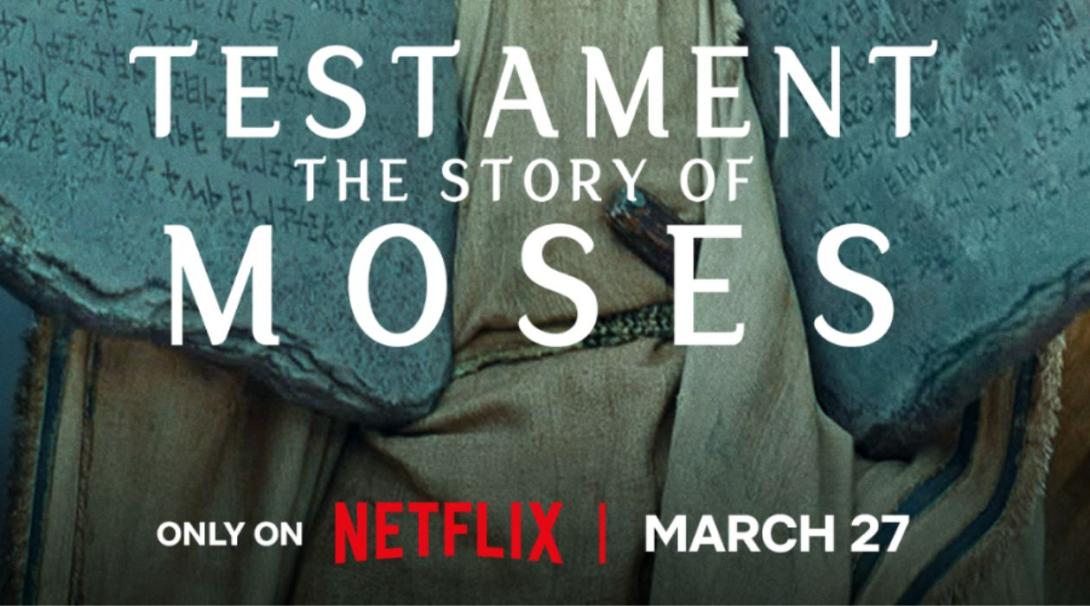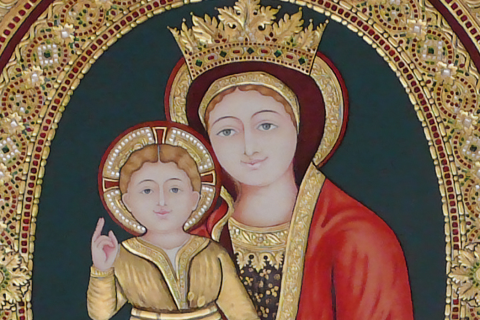Netflix series 'Testament' bridges faiths, retelling Moses with diverse commentary and social justice focus. A must-watch dialogue.

©
As Living City readers will know, our current issue (March-April) focuses on conversation between the Abrahamic faiths. What better time then to consider a new TV mini-series on Netflix called “Testament: The Story of Moses,” retelling the story of the Exodus.
And how innovative it is that filmmakers decided to supplement this docudrama with commentary from religious leaders of Jewish, Christian, and Muslim traditions! “Testament” was released on March 27, during Holy Week.
Moses is presented as not only a Biblical figure, but a Quranic one. Many Christian viewers will find this confusing. It isn’t explained, simply offered that way.
The presentation is perhaps a bit didactic, with continual narration, and frequent interruptions of the action to see and hear from expert commentators.
The first commentator is Black pastor Bishop Andy Lewter of Full Gospel Baptist Church Fellowship in New York. He begins talking at the 4-minute mark of episode 1. Almost immediately after Lewter comes the second commentator, Reconstructionist Rabbi Maurice Harris, author of a book on Moses. Commentator three is Asian pastor Tom Kang from New Story Church in Los Angeles. Commentator four appears a few seconds later, Jonathan Kirsch, a popular Jewish author. And only a moment after Kirsch comes Dr. Celene Ibrahim, author of Women and Gender in the Qur’an. In her brief, first remark, she states how Moses is unique in the Qur’an as a prophet whose entire life story is told in those scriptures.
Each commentator speaks for about 10 seconds at a time, and each of these five reappear many times. There are several others, as well.
Moses is played by Israeli actor, Avi Azulay, who is a new face to American audiences. Azulay is a young man whose previous credits include mostly Israeli theater and tv shows. I was surprised how young Azulay was, at first, until I went back to Cecille B. DeMille’s “The Ten Commandments” and realized Charlton Heston was also young—only 32 when that 1956 film released. (Wow! He looked a lot older, didn’t he?!)
The most familiar actor to an American audience may be, not the face, but the voice of English actor Charles Dance of “Game of Thrones” fame, as narrator in one episode. I also particularly enjoyed the Ghanaian-American actor Oberon K.A. Adjepong as Jethro.
Moses is presented as not only a Biblical figure, but a Quranic one. Many Christian viewers will find this confusing. It isn’t explained, simply offered that way.
Three episodes—“The Prophet,” “The Plagues,” and “The Promised Land” are each 80-plus minutes in length. “I am what I am, and what I will be,” are the opening words spoken in episode 1, in a narrator’s voice, and attributed to Yahweh—according to the subtitles, when I turned them on. Then you see Moses’s face, staring straight ahead.
In addition to the scriptures, Midrash and Hadith play a part in understanding this Moses and this Exodus. (As do quick takes from an archaeologist and a particularly interesting Egyptologist.) Perhaps unaware of this, some early reviews of the show were negative, saying that it doesn’t present a proper Biblical view.
In episode 1, for instance, most Jews and Christians will be surprised to encounter the character of Serah, daughter of Asher. She’s mentioned briefly twice in the Torah, but the story of her involvement in the Exodus comes from Midrash.
In episode 3, after the horrendous effects of the plague on the firstborn, we see Moses in the arms of Zipporah, his wife, in agony saying, “What have we done!?” Zipporah replies, “What God asked you to do.”
Also in that final episode, as they are about to finally leave Egypt and head to the Red Sea, Bithiah, Pharoah’s daughter and Moses’s mother, comes forward in the crowd and declares that she will join them. The backstory for this fascinating character and event is told by both Jewish and Muslim commentators from extra-Biblical and extra-Quranic literature.
Occasionally, commentators are permitted to explain tentpoles of their faith as derived from the Exodus. This happens in episode 3, for example, when the final plague is explained by two Christian pastors as the foreshadowing of Christ as the blood of the lamb.
But if this series has an agenda, it might be described as one of social justice. The Moses of Netflix’s “Testament” is a man who continually seeks to challenge the status quo and protect the vulnerable. One of the commentators compares this Moses to Dr. Martin Luther King. And one of the rabbi commentators exclaims early on in episode 1 that “social justice began with Moses!”
I can think of worse criticisms of what we see on TV these days. The series is worth watching.
If you enjoyed this article, you might like...














